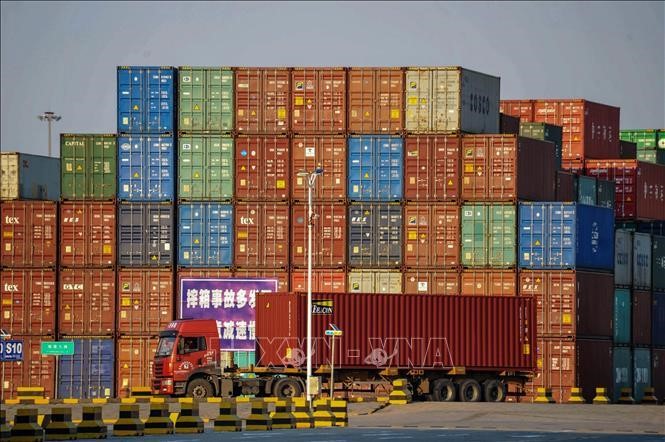The world is changing rapidly: For the first time in 15 years, China is no longer America's largest trading partner.
Replacing China is Mexico, followed by Canada. The next stage of globalization is "regionalization".

According to new information revealed by Luis Torres, senior economist at the Dallas Fed, Mexico has overtaken China to become the top trading partner of the United States. In the first four months of 2023, the total value of goods exchanged between the two countries reached $263 billion, accounting for 15.4% of the US's import and export turnover.
The share of trade with Canada and China accounted for 15.2% and 12% respectively. Although the world has returned to normal after the pandemic, Mexico's overtaking China - which has spent the past two decades more deeply engaged with the US economy - is a clear sign of the turmoil of the year. 2020 will continue to shape the world in the years to come. Mr. Torres believes that the "seeds" of change have been planted before the pandemic hit. While former President Donald Trump imposed towering tariffs on Chinese goods, the United States signed free trade agreements with Canada and Mexico as an upgraded version of the NAFTA agreement that was in place nearly 30 years ago.
Another reason is the trend of "nearshoring", where countries move the supply chains of the most important goods to countries closer to them both geographically and politically. “Although there is little data on nearshoring, protectionism and industrial policies by countries all tend to promote regional trade rather than global trade,” writes Torres.
Nearshoring has thrived during the pandemic amid soaring trans-Pacific freight costs and consumers wanting shorter lead times. Economists call this the “Amazon Prime effect,” named after the retail giant Amazon's loyalty program. Earlier this year, The New York Times' Peter S. Goodman also wrote that companies like Walmart are increasingly looking to countries closer to home amid escalating US-China political tensions.
“Globalization is not reversed, but the next phase of globalization will focus on regional networks,” said Michael Burns, head of investment fund Murray Hill. In his newly published book, "The Globalization Myth: Why Regions Matter," author Shannon O'Neil makes a similar statement. In addition, he believes that bringing production lines closer to the US will be beneficial for American workers. On average, goods imported from Mexico “are up to 40 percent made in the United States.” The share of goods imported from Canada is 25% and from China is only 4%.











